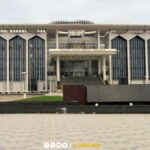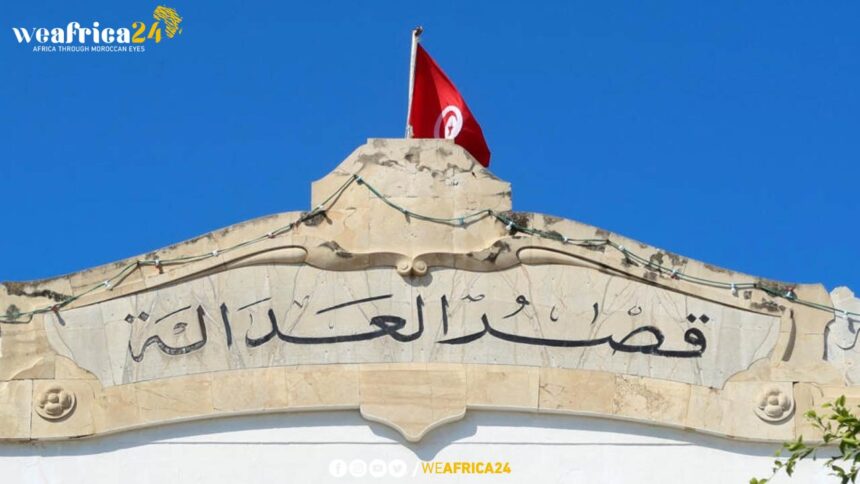Two prominent Tunisian commentators, Borhen Bssais and Mourad Zeghidi, were sentenced to one year in prison on Wednesday, May 22nd, under a law targeting “false information.” The charges stemmed from their criticisms of President Kaïs Saïed. Bssais, a well-known private media presenter, and Zeghidi, a political commentator, were each given six months for disseminating “false news” via media and social networks, and an additional six months for making “false statements aimed at defaming others,” according to Mohamed Zitouna, spokesperson for the Tunis First Instance Court.
During the trial, the defendants invoked freedom of expression, arguing they were merely performing their duties by analyzing and commenting on the country’s political and socio-economic issues. According to an AFP journalist present in the courtroom, they were arrested on May 11 for statements made on radio and television shows, as well as social media posts that were deemed critical of President Saïed’s administration.
The charges were brought under Decree-Law 54, enacted in 2022 by President Saïed to combat the spread of “false news,” although it has faced criticism for its broad interpretation. The defendants’ lawyers requested a dismissal of the charges.
“My role as a political analyst requires me to discuss public affairs. I want to know which phrase or word was considered a violation of the Penal Code,” Zeghidi stated in court, as reported by the AFP journalist. Zeghidi’s charges related to comments made in February 2024 and a post supporting an imprisoned journalist critical of President Saïed. President Saïed, elected in 2019 for a five-year term ending this autumn, consolidated his powers in a controversial move in the summer of 2021.
“When politics enters the courtroom, justice exits,” asserted Zeghidi’s lawyer, Kamel Massoud, urging the judge to maintain judicial independence in a nation where critics argue the judiciary has been compromised. Bssais faced charges of “insulting President Kaïs Saïed” through radio broadcasts and online statements between 2019 and 2022. “As a host, I must present all opinions regardless of their perspectives,” Bssais contended, describing his arrest as if he were “a dangerous criminal.” His lawyer, Khaled Krichi, argued, “An entire population is being prosecuted under Decree-Law 54.”
Their arrests coincided with the forceful detention of lawyer and commentator Sonia Dahmani on May 11 under the same decree. Two days later, lawyer Mehdi Zagrouba was also detained at the Tunis Bar Association offices. These incidents follow the arrests of activists from migrant aid organizations in preceding days.
The sentencing of Bssais and Zeghidi highlights ongoing tensions in Tunisia over freedom of expression and the perceived overreach of legal measures to stifle dissent. The outcome of these cases may have significant implications for the country’s democratic practices and judicial independence.







